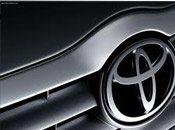Drivers have lots of options when trying to find low-cost insurance for your vehicle. You can get prices from an insurance agent or go online to compare rates from a lot of car insurance companies. Comparing car insurance through online companies can be fast and easy, plus you may find lower rates.
If you've never shopped for car insurance online, you may be overwhelmed by the hoards of online car insurance companies and websites selling insurance. The are a couple different ways to compare quotes from local car insurance companies. The simplest method to compare involves getting comparison quotes online. This can be done by comparing rates here.
Rates are determined by these factors
Insurance premiums for your 1990 can be significantly different depending on several factors. Including but not limited to:
- Higher performance 1990 vehicles cost more
- How many accidents you have had
- Home and auto can earn discounts
- Pleasure, commuting or business use can affect rates
- Your age
- Whether you are married
- Add-on coverages such as rental reimbursement
- Your job
- Your coverage level
- Home ownership saves money
One important consideration that can impact your rates is the age of the vehicle. Used vehicles have a lower value compared to new models so the payout to repair may result in lower rates. On the flip side, newer models have more advanced features like adaptive cruise control, autonomous braking, and lane departure warning system that may help lower rates.
Coverage for liability
This coverage protects you from damage or injury you incur to other's property or people. Liability coverage protects against claims like pain and suffering, repair costs for stationary objects, and legal defense fees. Coverage is generally pretty cheap so buy as large an amount as possible.
Coverage for collisions
This coverage pays for damage to your resulting from colliding with a stationary object or other vehicle. You first must pay a deductible then your collision coverage will kick in. Collision coverage makes up a good portion of your premium, so you might think about dropping it from lower value vehicles. You can also increase the deductible to get cheaper .
Comprehensive coverage (or Other than Collision)
Comprehensive insurance coverage pays for damage from a wide range of events other than collision. A deductible will apply then your comprehensive coverage will pay. The highest amount your car insurance company will pay is the ACV or actual cash value, so if it's not worth much more than your deductible consider dropping full coverage.
Protection from uninsured/underinsured drivers
Uninsured or Underinsured Motorist coverage protects you and your vehicle's occupants when other motorists do not carry enough liability coverage. Because many people only carry the minimum required liability limits, their liability coverage can quickly be exhausted. That's why carrying high Uninsured/Underinsured Motorist coverage is a good idea.
Insurance for medical payments
Med pay and PIP coverage pay for immediate expenses like EMT expenses, pain medications, and nursing services. They are often utilized in addition to your health insurance policy or if you lack health insurance entirely. Personal Injury Protection is not available in all states and gives slightly broader coverage than med pay.

